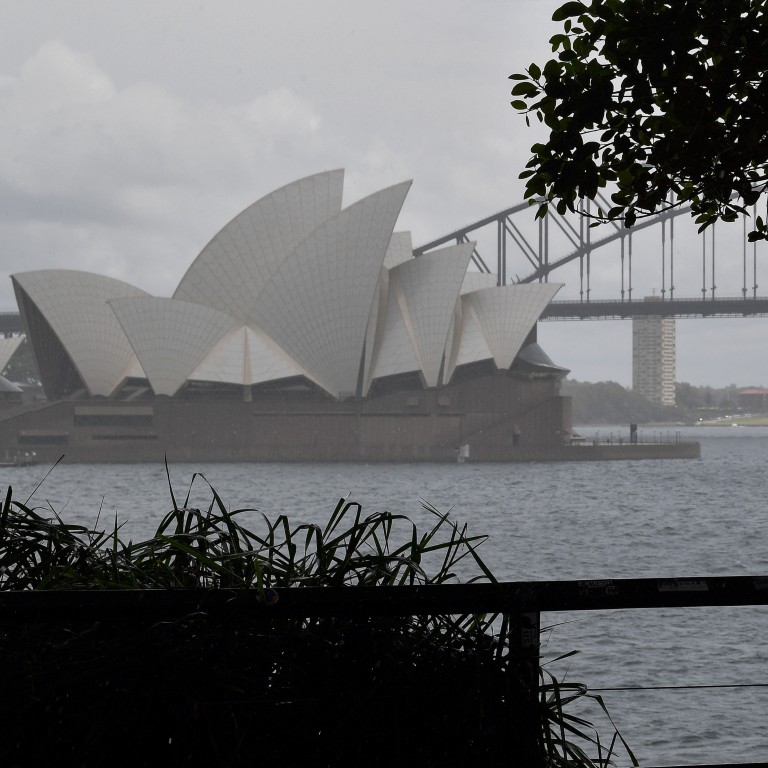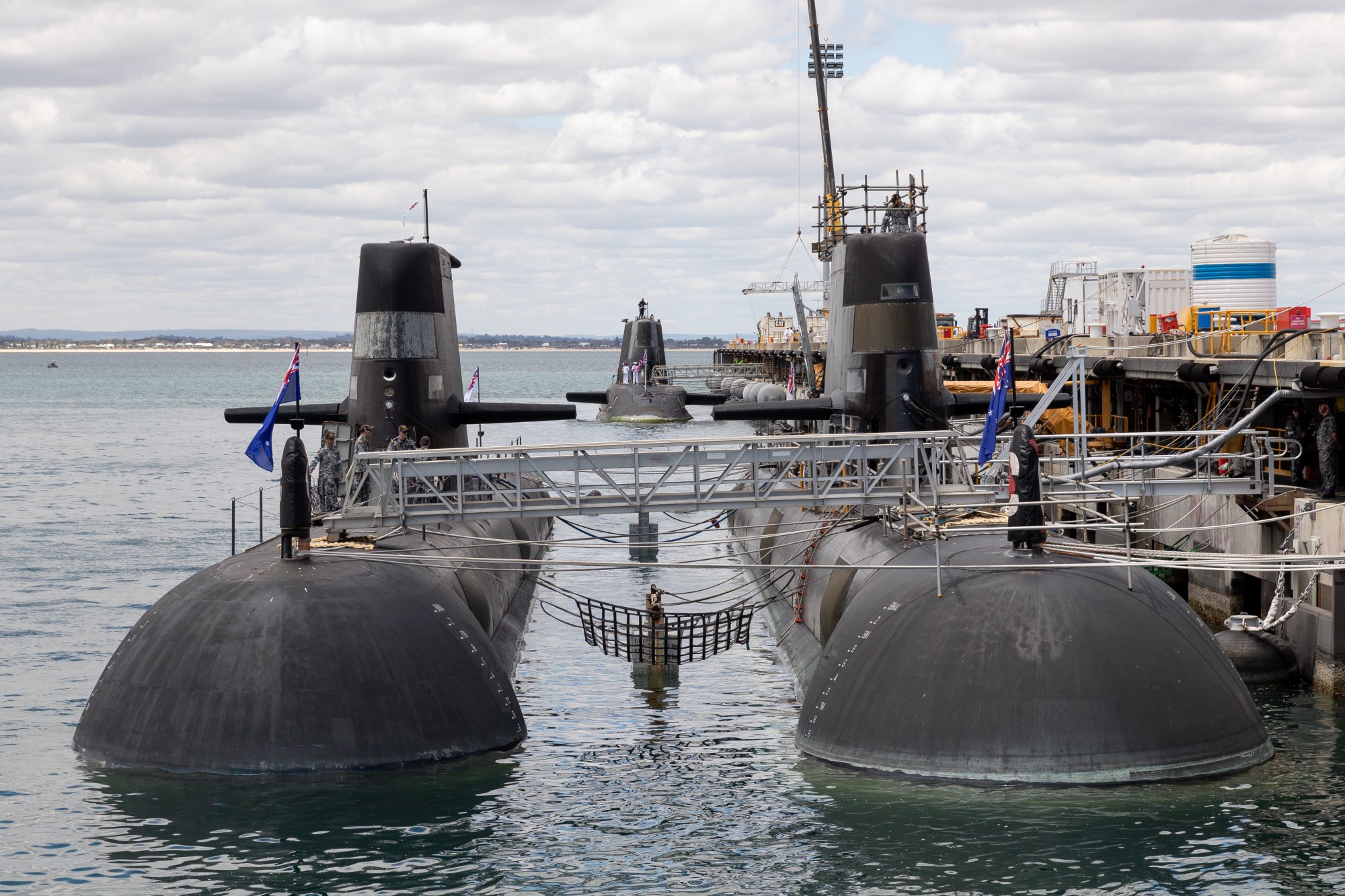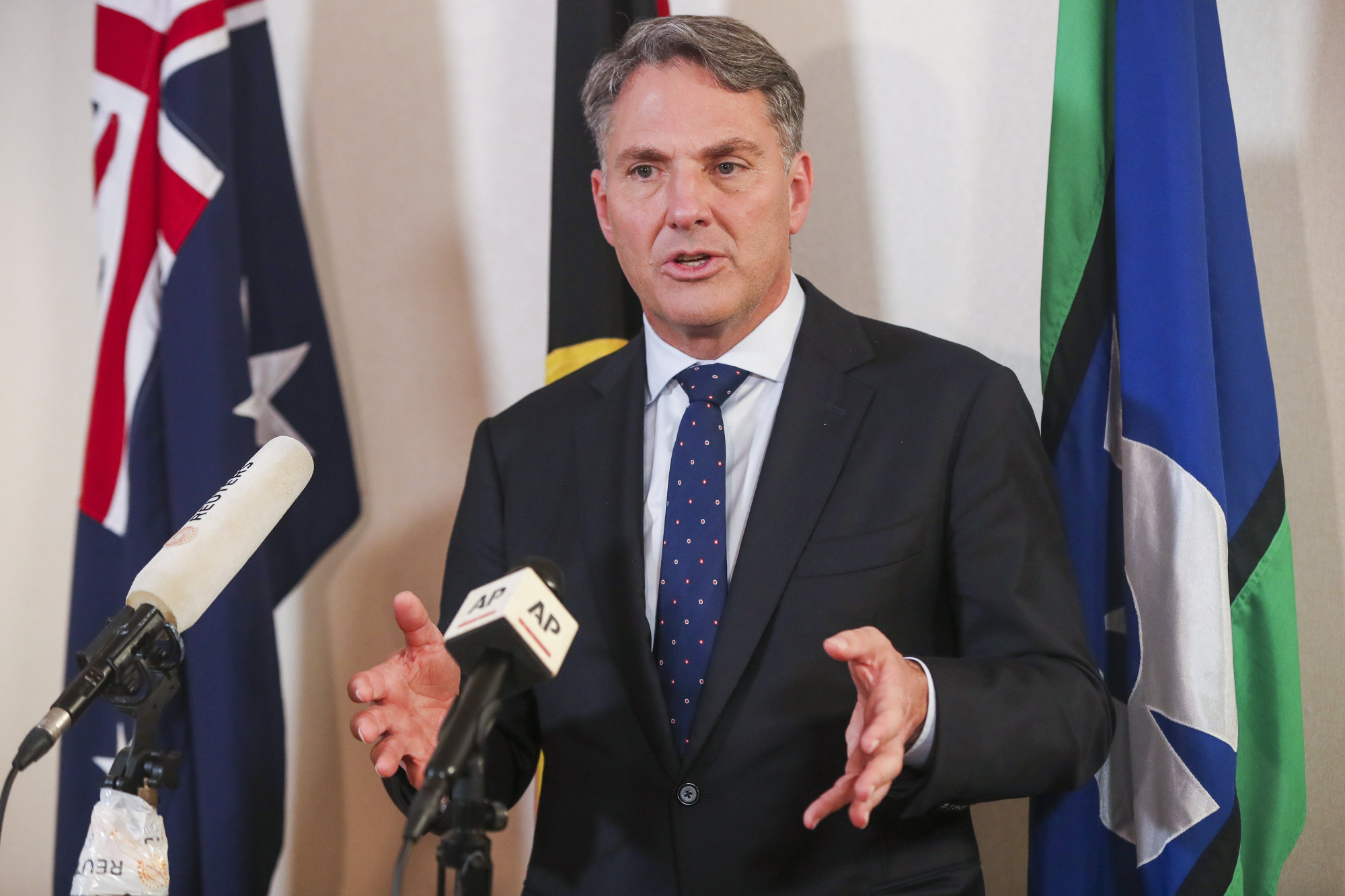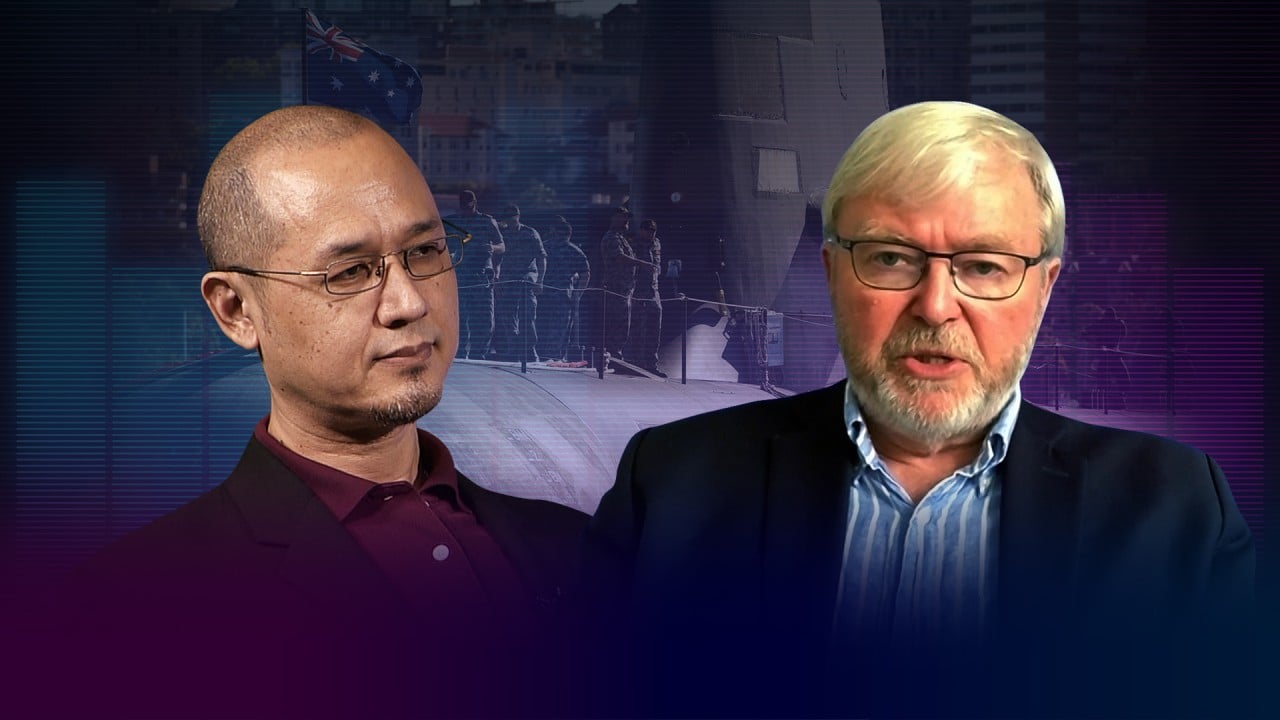
Aukus fallout: as US-China tensions grow, Australians reveal mixed feelings about nuclear submarine pact
- Surveys reveal concerns that Aukus won’t make Australia safer, while fears grow of ‘secretive policymaking and little government accountability’
- Some observers have also questioned the high cost of Aukus to taxpayers, suggesting there are other, less expensive ways to ‘deter China’

According to a report last year by the Independent and Peaceful Australia Network (IPAN), the Aukus alliance would make Australia “even more dependent on the US and less extricable from its wars”.
IPAN – made up of peace, faith and environmental groups, as well as trade unions – said after their little-known report that the agreement had led to “increased militarisation of our society, increased defence expenditure and arms exports, secretive policymaking and little government accountability”.
The group’s views were overshadowed, however, by findings from the Lowy Institute, a prominent Australian think tank.
Britain, Australia to unveil nuclear submarine design in US
And more than half of Australians surveyed – 52 per cent – believed Aukus would make Australia safer while just under 50 per cent said it would do the same for the surrounding Pacific region.
Meanwhile, another survey last year showed Australians continued to express their support for an alliance with the US, including on Aukus. But respondents to the “Incomplete Project”, a government-commissioned survey of public opinion, said the pact should not undermine the country’s sovereignty.
Nuclear proliferation?
After Aukus was signed, “anti-Aukus” groups across the country staged minor protests over Australia’s use of nuclear capabilities, the prospect of being drawn into war, and being used to advance American defence and weapons manufacturing.
Australia is a signatory to the United Nations’ nuclear non-proliferation treaty to not acquire nuclear weapons.
Australia will need to message carefully that its aim is to promote stability and balance, rather than aggravate tensions
“A key issue for Australia in managing the Aukus submarine announcement is how it will be received in the region,” said Conley Tyler, who is executive director of the Asia-Pacific Development, Diplomacy and Defence Dialogue. “Australia will need to message carefully that its aim is to promote stability and balance, rather than aggravate tensions.”
Observers have also questioned the high cost of Aukus to taxpayers and whether it was signed with sufficient commercial considerations.
Manufacturing and political experts said there were alternative options that cost much less than the A$170 billion (US$182.5 billion) being spent on Aukus submarines.
Former Australian senator Rex Patrick said that though nuclear-powered submarines were powerful, Australia could have considered buying 20 of the latest non-nuclear powered Air Independent submarines, which also had advanced capabilities such as staying underwater for longer than older models.

It would have cost taxpayers only A$30 billion, Patrick said. The rest of the A$170 billion could have been used for other defence spending such as fuel security, a bigger helicopter fleet and war reserve stock.
Patrick, who has questioned the Australian defence department’s use of taxpayer funds on binned projects, said Canberra had signed the Aukus contract without knowing what it was buying.
Infrastructure planner Scott Elaurant noted the Australian public had not been shown the cost differences between the Aukus deal and other submarine projects.
By rising to US bait, China has lost its soft power advantage in Asia
His analyses on Australian manufacturing and Aukus forums online showed how some non-Aukus submarine projects could save taxpayers billions of dollars and still be completed earlier.
Elaurant added that Aukus would not provide a bonanza of jobs as construction of the submarines in South Australia would not start for years given the time the country needed to amass the technological know-how to commence manufacturing.
Australian defence minister Richard Marles had claimed earlier this month that Aukus would create “thousands” of new local jobs.
Security gaps
To deliver those jobs, Australia should build an interim fleet of conventional submarines, trade unions said, warning that such a fleet would be necessary to plug a gap of about two decades between Australia’s ageing Collins-class submarines being retired and the Aukus submarines being ready.
The possibility of delays in the Aukus project could also widen this security gap, they cautioned.
Doubts about the US’ capacity to service Aukus submarines have also started to surface. Last month, according to local media, US politicians expressed concerns to US President Joe Biden that the American submarine-building industry could hit a breaking point in assisting Australia.
“From a strategic and operational standpoint, the Royal Australian Navy could be left with no submarines capable of being deployed, leaving our armed forces with a significant capability gap,” the Australian Shipbuilding Federation of Unions said in a report. “This conflicts with Australia’s increasingly high strategic threat [level] and would undermine national security.”
An interim fleet would secure at least 2,000 local jobs but Marles ruled out the possibility last week.
There are also concerns about whether Australia has the expertise to maintain these submarines once they are built.
“Aukus, under [former Australian prime minister] Morrison, was hastily conceived and based on assumptions that Australia could rapidly develop legal, operational, and logistical mechanisms to maintain nuclear-powered vessels,” said former Australian submariner Commodore Pat Tyrrell and John Bruni, CEO of Australian think tank SAGE International, in an analysis last year published by the think tank.
“Nuclear submarines are the best way for the Royal Australian Navy to meet its mission to defend Australia … however, nuclear boats require significant supporting infrastructure, including training, to operate effectively.”
Australia says committed to Asean stability, calms fears over nuclear subs
The pair also said there was little transparency about how the pact would work - for example, whether it would cover just submarine acquisitions or also include the sharing of intelligence acquired by these submarine patrols.
Basically, more questions need to be asked, experts say.
“Just hinting that it’s all about China or making loose references to ‘deterrence’ will not do,” said Sam Roggeveen, director of the Lowy Institute’s international security programme, in an op-ed earlier this month. “There are many ways to deter China; why are we choosing this one?”


